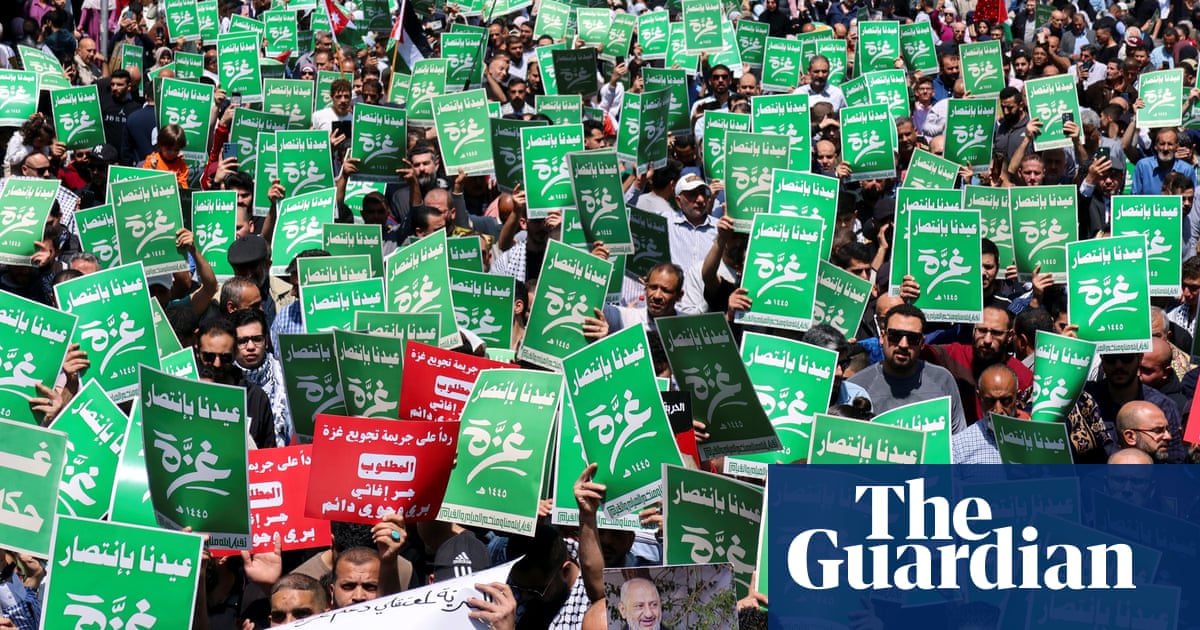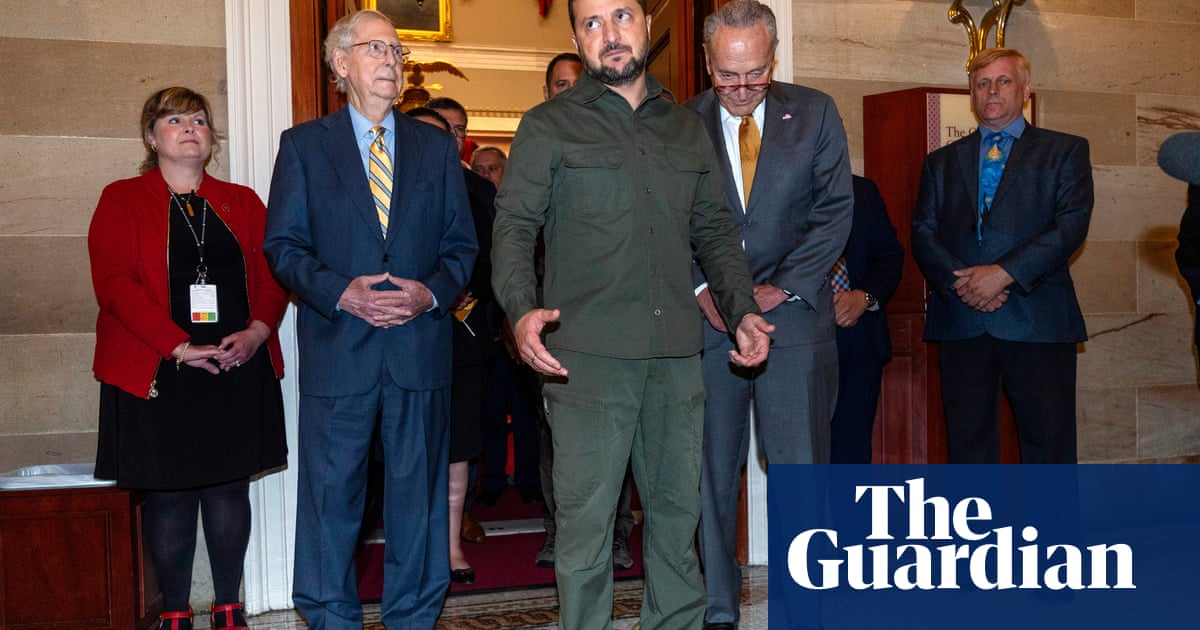
Jordan has found itself caught in the crosshairs of the confrontation between Iran and Israel, facing public anger at home and in the region for its role in downing dozens of Iranian drones targeting Israeli territory on Saturday night.
Underlying its precarious position, Amman summoned the Iranian ambassador on Sunday over comments from Tehran that appeared to threaten Jordan for joining the US-led effort to support Israel in shooting down the incoming salvo. The diplomatic summons came after Iran seemed to warn Jordan that it would face an attack of its own if it continued to defend Israel.
The Fars news agency reported that Iran’s armed forces had warned they were “carefully monitoring the movements of Jordan during the punitive attack against the Zionist regime” and that if Jordan intervened, it would be the “next target”.
Sharing a border with Israel, Jordan hosts the largest diaspora of Palestinians and has historically been considered their greatest supporter in the region. Its leaders have been highly critical of the war in Gaza, with King Abdullah publicly backing efforts to organise aid airdrops inside the territory, and his wife, Queen Rania, who has a huge audience on social media, delivering powerful speeches and statements in defence of Palestinians.
The stance is mirrored in Jordanian public opinion, with thousands of people, many of them Palestinian refugees, demonstrating outside the US embassy in Amman for almost two weeks in protest against Washington’s role in propping up Israel.
In such a climate, the military intervention over the weekend has sparked anger inside Jordan, as well as among its neighbours, with images on social media depicting King Abdullah as a traitor wearing the Israeli flag.
Iran’s foreign ministry tried to dampen the row on Monday, with its spokesperson, Nasser Kanaani playing down Amman’s involvement at a briefing in Tehran. “I am not in a position to confirm or deny Jordan’s role in intercepting these launches, and this is a military issue that the relevant authorities should comment on,” he said.
Expressing the hope that Arab countries would support what he insisted was Iran’s legitimate response to the attack on its consulate in Syria on 1 April, Kanaani added: “Our relations with Jordan are friendly and during the past months there have been continuous contacts between the officials of the two countries.”
In Amman, officials insist Jordan’s involvement was a matter of self-defence and protecting its sovereignty in its airspace. Jordan’s foreign minister, Ayman al-Safadi, a passionate diplomatic voice for Palestinians over the past six months, told local TV on Sunday that an assessment was made that there was a real danger from Iranian drones and missiles falling on Jordan, and the armed forces dealt with this danger. If the threat had come from Israel, he noted, Jordan would take the same action.
He said the root cause of the crisis still lay in Israel’s treatment of Palestinians and the Israeli refusal to accept a two-state solution.
Jordan’s pro-regime supporters issued further statements saying: “We are not Israel’s ally protector or puppet. Jordan’s actions were in line with its own security interests.”
The row prompted Jordan’s western allies to leap to its defence. David Cameron, the British foreign secretary, said: “You have to think from the Jordanian perspective, as a neighbour of Israel and the occupied Palestinian territories. They’re very concerned about weapons and missiles and ordnance dropping into their country. And so they take action, quite rightly, as a sovereign independent country to keep their skies clear and their people safe. But clearly the biggest part of this operation was the Israelis themselves and the defences they built up over the years.”
Nevertheless, the portrayal of the Jordanian air force in some Israeli media as an ally of the Jewish state will unnerve Amman.
A statement by the Jordanian cabinet after the Iranian attack urged the population to rely only on official sources and not on social media for its information. Jordan has implemented draconian social media laws, and there have been violent clashes between security personnel and protesters in the past couple of days, including instances of stone-throwing and arson aimed at the security forces.
Many other Arab states have stayed silent in recent days as the crisis flared, but it was reported that Kuwait and Qatar turned down US requests to use its bases to thwart the Iranian attack.
Jordan fears that Iran has its sights on the Hashemite kingdom and is quietly encouraging a mood of revolt inside Jordanian borders. The secretary general of the Muslim Brotherhood party in Jordan, Murad Adaileh, has criticised the arrest of protesters, and, in a tweet that avoided discussing Jordan’s role at the weekend, said the Iranian attack and recent events had revealed how dependent Israel was upon others for its security.
One viral picture recently showed posters carried during a demonstration addressed to the Jordanian army, calling on it to heed the calls of children and women in Gaza, or take vengeance on their enemies and free the land, adding the hashtag: “Where’s the army of al-Karamah?” The word means “dignity” and also references the name of a 1968 battle in which the Jordanian army forced the Israel Defense Forces to retreat from a retaliatory operation on Jordanian soil.












